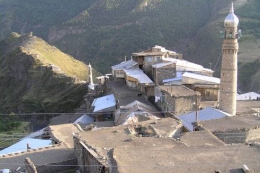Nogai is a Turkic language that is spoken in the southwestern parts of Russia. Speakers can also be found in Kazakhstan and Uzbekistan. There are approximately 90,000 Nogai speakers. The Nogai people descended from the Golden Herde, who were part of the Mongol empire from the 13th to the 16th century. The Nogais migrated from Mongol and settled in Ukraine. In the 19th century, the Nogai were expelled from Ukraine and this led to their geographical separation. While some Nogais migrated to Turkey, others went to Romania, while others preferred to settle within the Russian Federation. Due to the fact that Nogai is a Turkic language, it was quickly absorbed in Turkey and is currently spoken by the older generation. Nogai speakers also declined in Russia due to the extensive use of the Russian language.
Other names for Nogai include Nogay, Karanogai, Nogaitsy, Kubanogai, Nogalar, Noghai, Noghay, Noghaylar and Nogai Tartar. Nogai is related to other languages such as Kazakh, Crimean Tartar, Kyrgyz and Karakalpak. The Nogai language was written using the Arabic alphabet before 1928. The Latin alphabet was adapted between 1928 to 1938. Since then, the Cyrillic alphabet has been in use. Until 1957, Nogai was taught in primary schools. Currently, Nogai is an optional subject in schools. The Nogai languages has 3 main dialects. This includes Qara- Nogay, Aqnogay and Nogai-Proper. There are slight dialectical differences between the languages.
The Nogai language is mainly used at home and within the community. Most children of school going age learn other languages. Nogai is taught in primary and high schools. A large number of people who speak the language can be able to read and write in Russian. Nogai speakers are fluent in either Russian or Karachi or both. Most Nogai villages have not yet been modernized. This means that roads and communication systems that are currently used are a bit primitive. Children miss school for several weeks during autumn and spring due to the fact that roads become impassable. This has resulted in a lot of Nogais leaving their homes and resettling in major urban areas such as Moscow and Khabarovsk.
